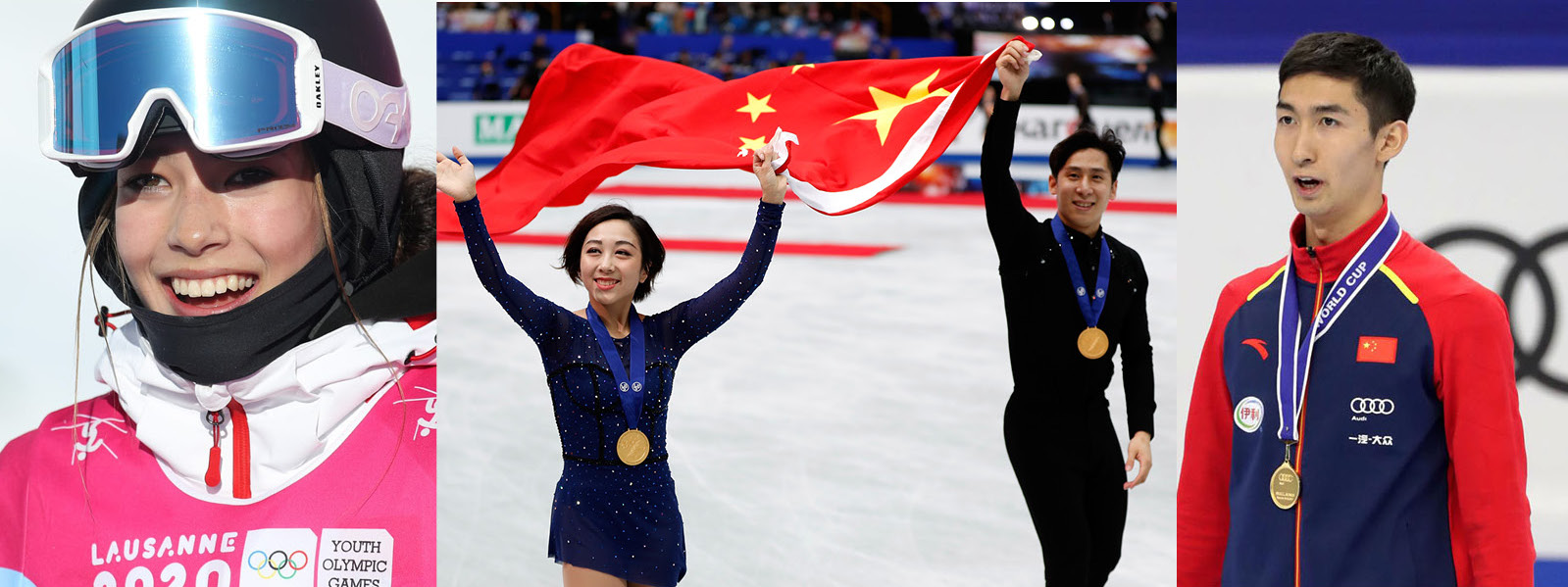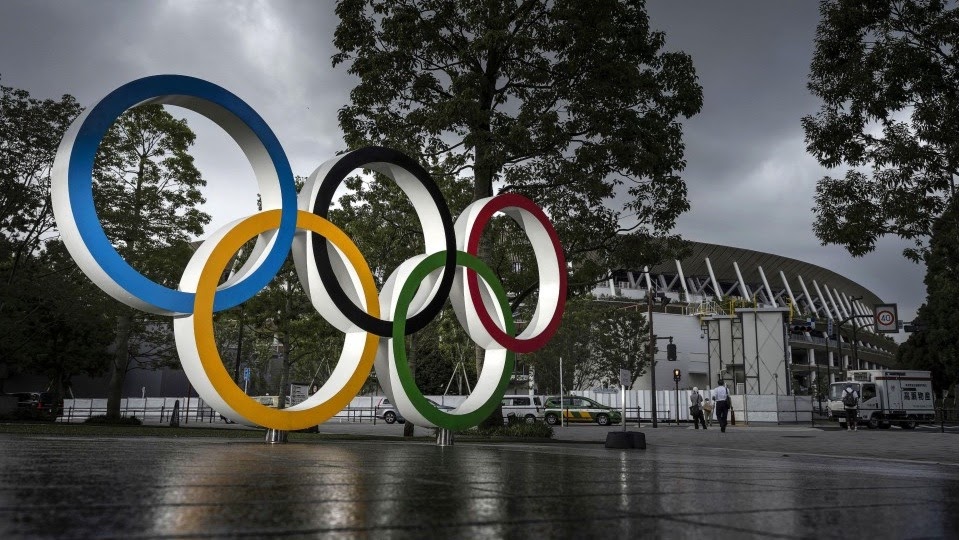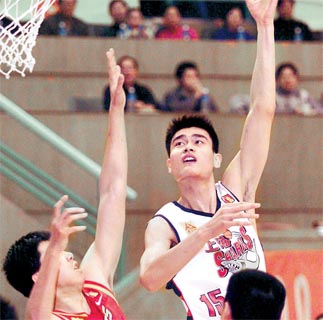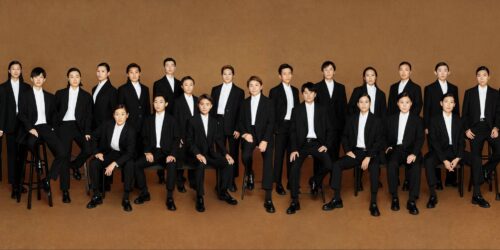China sports in 2020 — and what to expect in 2021
The China Sports Column welcomes in 2021 with a look back at the year that was. There was no live sports for a good chunk of 2020, but that doesn't mean the year was short on notable happenings.

It seems like a distant memory now, but 2020 began on a nice note for Chinese athletes. On the ski slopes, naturalized Chinese citizen Eileen Gu (谷爱凌 Gǔ Àilíng) claimed three golds at the Winter Youth Olympics, while Wáng Qiáng 王薔 stunned Serena Williams in the third round of the Australian Open.
But the emergence of COVID-19 sent Chinese sports into hibernation. The Chinese Basketball Association (CBA) season was suspended, the women’s Olympic basketball qualifiers (which were to take place in Serbia) were cancelled, and a major boxing match scheduled for Hainan — a title bout between Jose Ramirez and Viktor Postol — was postponed. (“Even if we went over there and did the fight we’d be playing to an empty house because nobody is traveling to China with this virus situation,” Top Rank Boxing chairman Bob Arum said.)
The Shanghai Grand Prix and the women’s soccer Olympics qualifiers were next on the chopping block. F1, initially delayed until October, was canceled outright later in the year, while the Olympic qualifying was moved from Wuhan to Australia, where the women’s team claimed some memorable results against Australia, Thailand, and Taiwan to advance to the final. China’s midfield star and Wuhan native Wáng Shuāng 王霜 missed the tournament due to her inability to leave the quarantined city, though the former PSG playmaker became a viral sensation on the Chinese internet with her practice videos from the top of her tower block during the city’s shutdown.
As COVID spread in the region and live sports began to disappear from screens, attention in China turned to the then-relatively unknown Zhāng Wěilì 张伟丽. Zhang claimed the UFC world title in the summer of 2019 in front of a half-empty arena in Shenzhen, but her star turn came in March, when she defended her belt against Poland’s Joanna Jedrzejczyk in an instant classic. The fight helped establish the Hebei fighter as one of China’s most celebrated athletes.
In contrast, another of China’s major sporting icons saw his reputation take a steep nosedive in March.
Sūn Yáng 孙杨, China’s three-time Olympic gold medalist, was hit with an eight-year ban after the World Anti-Doping Agency (WADA) successfully appealed to the Court of Arbitration for Sport (CAS) to extend the FINA’s weak three-month suspension. In a trial that was marred by translation errors and unclear evidence, CAS found Sun guilty of obstructing the drug testing process, handing down what was essentially a career-ending ban.
Or so everyone thought. The Swiss Supreme Court overturned the ban in December, citing the bias of CAS chair Franco Frattini. The case is set to play out yet again this year, which could result in Sun Yang returning in time for the Tokyo Olympics. (Speaking of those Olympics — March was also the month that Japanese authorities announced the Games would be postponed from later that summer to 2021.)
In May, the Chinese soccer world was rocked by the news that a fifth of the country’s professional teams would be folded. The reckless overspending of many clubs was brought into sharp focus. The death of historic clubs such as Liaoning FC and Tianjin Quanjian provided the impetus for the Chinese Football Association (CFA) and Chinese Super League (CSL) to introduce a strict salary cap and financial spending rules.
By June, sports returned, as the CBA resumed its season. In front of empty stands in Dalian and Qingdao, basketball became the focus for two months. A record-breaking regular-season run by the Guangdong Southern Tigers culminated in the team’s 10th CBA championship.
The soccer season — delayed due to COVID — began a month later. Following the CBA lead, all games were played in a bubble, under a unique two-group format. Guangzhou Evergrande, with its team of naturalized Chinese Brazilians, started the season as favorites for the title, but it was Jiangsu Suning that shocked the country to claim the crown after a gutsy 2-1 win over Evergrande in the final — a game that was played in front of fans.
The final months of 2020 saw international sports belatedly return to China, with the table tennis World Cup. Victories for Mǎ Lóng 马龙 and Fán Zhèndōng 樊振东 helped soften fears of Chinese decline in men’s table tennis, while Chén Mèng 陈梦 continued to show that her position at the top of the women’s game is almost unassailable.
~
Predictions for 2021

1. China will underwhelm at the Tokyo Olympics
China has been on a steady decline when it comes to the Olympics results over the past decade. The high point in 2008, when Beijing hosted the Summer Games, seems a long way off, especially after the country finished third at Rio behind Great Britain in 2016.
In Tokyo, the gap between the U.S. and China will widen further. The question is if China will fall behind even Japan or Germany.
Many of China’s top Olympic hopefuls have been without elite international competition for more than a year due to COVID. Officials have been reluctant to let Chinese athletes travel even after most of the world has resumed international competitions.
2. China will fail to qualify for the FIFA World Cup (again)
Domestic soccer discourse was dominated by the perceived unfairness of big teams (namely, Guangzhou Evergrande) using naturalized players. Unfortunately for the men’s national team, the wave of naturalized players perhaps came too late to help them in the qualifiers for the 2022 Qatar World Cup.
The national team has not played since December 2019, and if the players are to develop chemistry, they’ll have to do so quickly.
Currently in the second round of the AFC World Cup qualifiers, China has to outright win its three remaining games if it hopes to automatically qualify for the next round. The most crucial of the three games is against Syria, currently leading Group A.
The team can still qualify for Round 3 if it is one of the four best runners-up (out of eight groups). We’ll have to wait and see. But it’s been 19 years since China made its sole World Cup appearance, and the smart money is on that drought to continue.
3. Winter sports will take center stage
Anyone who has skied in China recently will have seen the significant uptick in first-time skiers and snowboarders on the slopes. While winter sports have steadily been gaining momentum since Beijing was awarded the 2022 Winter Olympics, expect 2021 to be the year that winter sports are pushed front and center in the national consciousness.
Expect stars such as the ice skating pair of Suí Wénjìng 隋文静 and Hán Cōng 韩聪, speed skater Wǔ Dàjìng 武大靖, and skier Gu Ailing to emerge as the country’s primary Olympic medal hopefuls.
The year will also see Beijing 2022 test events begin after they were delayed by a year. While it remains unclear whether authorities will continue to bar international athletes from the country, the test events in any case will be promoted by state media and could capture the public’s imagination, especially if there are some Chinese gold medals awarded during these events.
4. More athletes will speak out against Chinese human rights abuses
Several high-profile European athletes spoke out against China’s human rights abuses in 2020. Starting with Mesut Ozil, a string of Muslim and non-Muslim soccer players began tweeting about China’s repression of its Uyghur minority. Global soccer icon Antoinne Griezmann recently dropped Huawei as a sponsor after a report about the company’s involvement in building a surveillance network in Xinjiang. Earlier in the year, Utah Jazz center Rudy Gobert joined his French soccer peers in a social media campaign to highlight abuses.
This is part of a global trend of athletes getting political, from participating in the Black Lives Matter campaign to lending support in Nigeria’s fight against police brutality. Expect the trend to continue.
The China Sports Column runs every week on The China Project.





